The adverse reactions of the human body not only occur in animals, plant pollen, drugs and food. The increase in histamine in the blood can cause worms and protozoa. Which parasites cause allergies and how to deal with this phenomenon, we will consider in more detail.
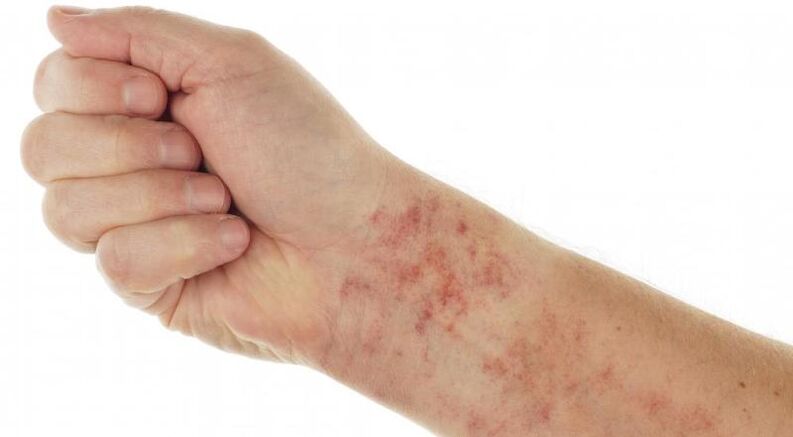
Types of parasites that cause allergies
Not all worms and protozoa are allergens that can cause adverse reactions in the human immune system. There are several types of this parasitic pathogen.
- Single-celled organisms or lamblia. They can cause atopic dermatitis, eczema, and neurodermatitis in children. Against the background of severe skin itching, intestinal work disorders, sleep deterioration, and irritability.
- Worms-Echinococcus ocellatus, roundworm, Toxoplasma gondii. These parasites can cause hives, edema, itching, bad breath, and asthma. In addition, worm a larvae can form focal necrosis in the body, leading to severe inflammation of the affected tissue.
- Fungi, bacteria, viruses. Such organisms are called infectious allergens and can cause adverse reactions to the immune system.
The most dangerous parasites that cause allergic reactions are worms and lambs. There are two ways of their negative effects on the body. First, worms poison human organs and systems through the products of their important activities. Secondly, the aging substances of the deceased can cause acute poisoning.
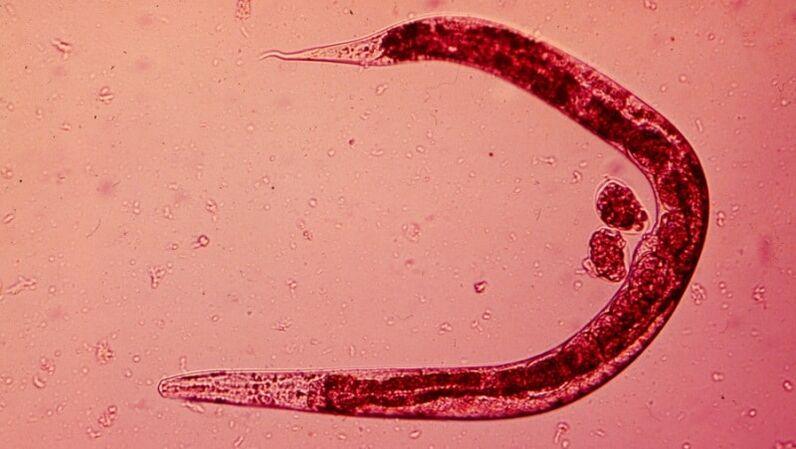
Cause and relationship
To understand the relationship between worms and allergies, you need to understand the reasons why certain worms increase the sensitivity of the immune system in adults and children.
Worms and Toxoplasma gondii will destroy the body's metabolic process, thereby causing the body to lose important trace elements, minerals and vitamins. This depletes the immune system and starts a violent reaction. As a result, a skin rash, shortness of breath, and abnormal functions of the stomach and intestines develop.
Another cause of parasitic allergies is the toxic effects of worm waste products. Harmful substances can poison human lymph and blood.
In addition, parasites have a destructive effect on the intestinal flora. As a result of this process, pathogenic microorganisms begin to grow rapidly, causing human body reactions in the form of fecal disorders, inflammatory processes, and flatulence.
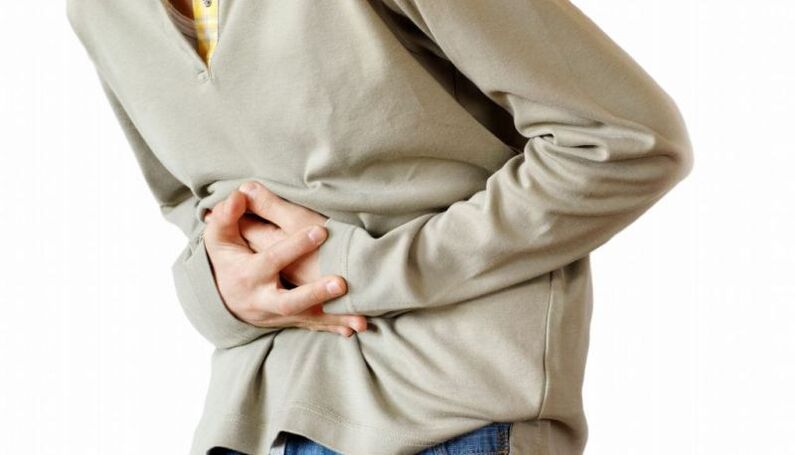
The negative process related to the development of worm invasion arouses confusion in the work of the defense system and increases its sensitivity to foreign antigens. This is a condition close to immunodeficiency. Due to pathological changes, a dangerous disease has developed into a person that has nothing to do with the invasion of worms, and for a long time, he has been treated with the wrong medicine, which is the main cause of the disease.
Symptoms and course
If we start from the relationship between worms and allergies, the symptoms of the body's negative reaction to parasites are similar to typical allergies. Usually, the skin and digestive system, and sometimes the respiratory system, are most affected.
The main symptoms of allergy to worms:
- Various local rashes in the form of urticaria, eczema, dermatitis;
- Decrease of bronchial lumen, bronchospasm, development of asthma;
- Severe itching, redness, blistering and swelling of the skin;
- Severe cough, fever, fever;
- Runny nose, swollen eyelids, lips, yellow skin.
important!A worm and Echinococcus oc multi-faceted can cause anaphylactic shock. It all depends on the number of parasites and their prevalence in internal organs.
Severe allergic reactions in children are caused by Lamblia. They cause the development of eczema, atopic dermatitis. The child's skin is covered with purulent acne or rough patches. These manifestations are clearly visible in the photos.
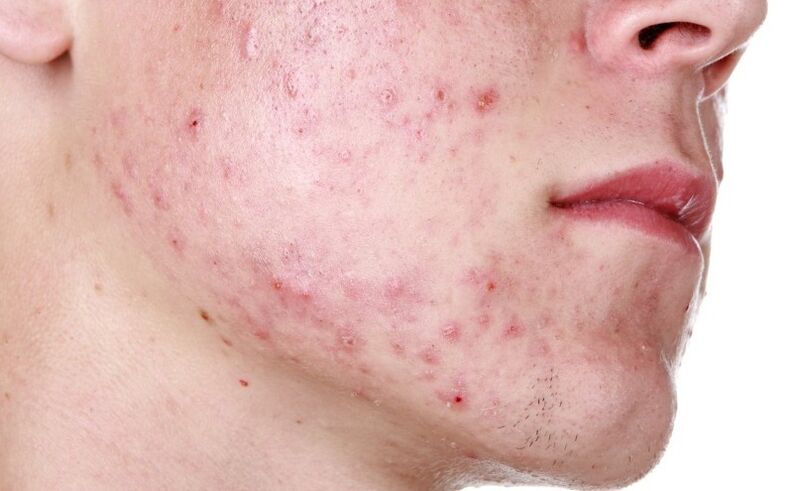
The early symptoms are almost invisible. As the invasion of worms deepens, they become more and more intense. With gradual decline in immunity, infected children and adults are more susceptible to colds. They continue to suffer from malaise, fatigue, decreased appetite and intestinal diseases.
People rarely associate these manifestations with worms and do not immediately consult a doctor. In this case, the disease will get worse and the condition will get worse.
treatment method
To get rid of allergies, you need to eliminate the cause of its occurrence. Treatment should be aimed at destroying parasites, their eggs and larvae. In addition, doctors choose drugs to remove the toxic decay products of dead insects from the body.
Pharmacy drug treatment
The medication can be prescribed for a course or a single dose. The method and dosage are chosen by the doctor.
Treatment should be supplemented with cleansing enema. This will help to quickly remove dead insects, eggs and waste products from the human body, thereby reducing poisoning. This process is best performed 12-14 hours after taking the medicine.
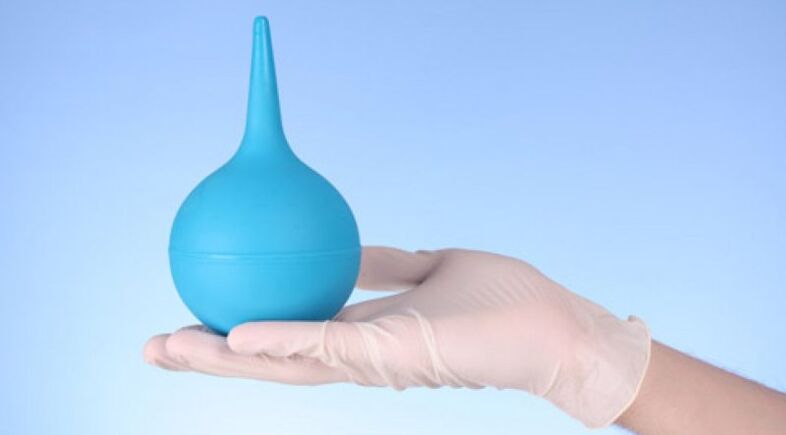
Folk remedies
If a comprehensive approach is adopted, the treatment will be more effective. It is recommended that traditional therapies be supported by folk remedies. The most important thing is to consult an expert before using them.
Walnut leaf soup
For fresh ingredients (300g), pour 1 liter of water and cook for 25-35 minutes. Filter the liquid and take 0. 5 cups in the morning and evening for a week.

Infused with tansy and wormwood
Put an equal amount of plants (50 grams each) in a liter pot and pour 750 milliliters of boiling water. Filter the infusion and use 200ml twice a day before meals.
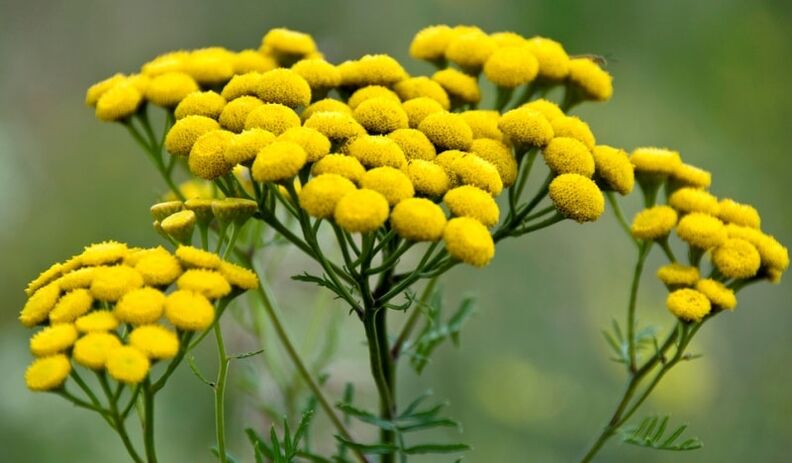
Garlic milk enema
Boil the garlic head in 250 ml of milk until soft. Pass the broth through cheesecloth and start the operation. Dosage: 200 ml for adults, 25 to 50 ml for children (depending on the age of the child). The treatment process consists of 5 steps.
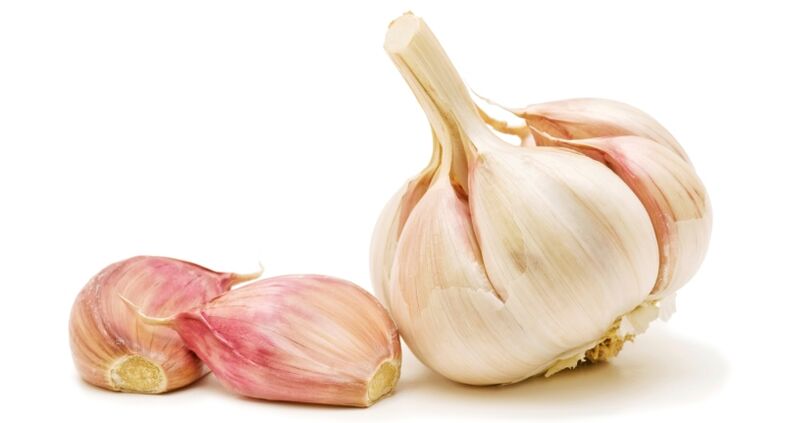
Soda Enema
Dilute 30 grams of soda in 2 liters of water (22-25 degrees). Give an enema 10-12 hours after taking the anthelmintic.
If used in combination with the main therapies, folk remedies against helminthiasis will be effective.
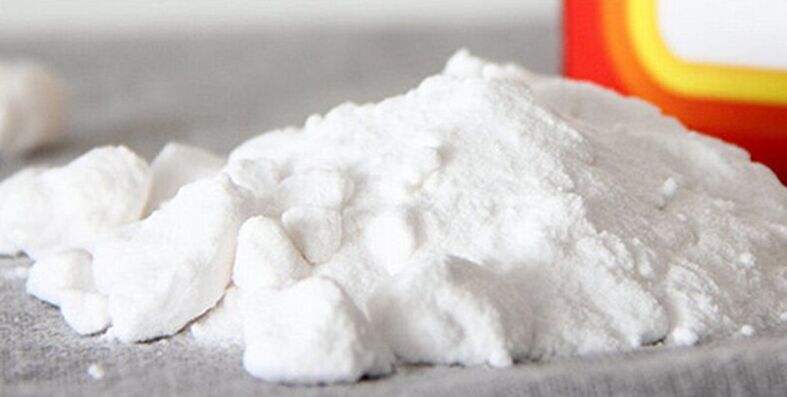
Prevent parasites
Based on the fact that worms may be related to allergic manifestations, you need to try to prevent them from entering the body.
- Observe hygiene rules. Most parasitic infestations happen through dirty hands (especially in children).
- Handle food carefully. Meat and fish need to be fried, cooked or salted. Wash vegetables and fruits with water.
- keep a pet. If cats or dogs live in a house, their condition (deworming and vaccination in time), the sanitary condition of the tray and the feeding container need to be monitored.
By following these rules, you can protect yourself and your family from the dangerous infections of worms.
Certain types of worms can indeed cause allergic reactions such as hives, dermatitis, and eczema. In severe cases, asthma, Quincke's edema, and anaphylactic shock may occur. Therefore, with a significant decrease in immunity (frequent colds, fatigue, loss of appetite, apathy and nervousness), it is recommended to seek medical attention immediately. The sooner the allergen is identified, the better the response of the disease to treatment.

























